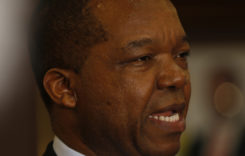
The Education Amendment Bill reached the committee stage this week, edging closer to becoming law. Some of the proposed law’s provisions, such as clauses seeking to outlaw corporal punishment as well as the expulsion of pregnant girls from school, have generated a lot of debate.
By ZimFact Staff
Here, we take a close look at the Bill and its provisions.
Why is the law being amended?
The amendments primarily seek to align the Education Act of 2006 to the 2013 Constitution. The Education Amendment Bill was gazetted in February 2019 and went for a second reading in the House of Assembly starting on Tuesday, June 18, 2019.
The debates
A report by the Portfolio Committee on Primary and Secondary Education, which conducted country-wide public hearings on the Bill in April this year, noted that while citizens were interested in issues ranging from languages to funding and the constitutional right to basic education, clauses on corporal punishment and student pregancy generated the most heated debate.
Similarly, these issues dominated debate on the Bill in Parliament this week.
Debating the Bill on Tuesday, Shurugwi North MP Ronald Nyathi (ZANU-PF), argued that the clause protecting girls from expulsion encouraged child marriages, and that it meant “we are saying let us let our children get pregnant at school”. He also argued against outlawing corporal punishment.
“If the Bible says, when a child misbehaves, he must be beaten, who are we to argue with the Bible?” Nyathi said.
On Wednesday, as the debate continued in Parliament, Mpopoma-Pelandaba MP Charles Moyo (MDC-A) weighed in:
“Our schools must not be turned into maternity homes. There is no need for those who would have failed on their choice to look for a boyfriend to proceed with schoolwork. A rotten apple spoils the barrel. I want to say, it will not be good for other pupils as well and the Bill is very clear to say, no pupil. So, when a person is impregnated, she ceases to be a pupil or a student, she becomes a mother.”
However, Warren Park MP, Shakespear Hamauswa (MDC-A), argued for a re-entry policy, not only for pupils whose studies are interrupted by pregnancy, but for other reasons as well.
“My suggestion is that there is a need for a comprehensive re-entry policy, in line with what is happening in other jurisdictions. Where the Ministry or the Government policy will not focus only on those who would have been affected by pregnancies, but those who would also be affected by other various factors,” Hamauswa said.
“We know some of the teenagers might be arrested, so there is a need for a re-entry policy or regulations that would allow those who would have been affected by pregnancies to come back and finish their education. I think this would be important to help a number of girl children within our society as well as boys who are also being affected. Currently, there is no clear re-entry policy in Zimbabwe.”
Government’s position
In response, Primary and Secondary Education Minister Paul Mavima defended the clauses, saying they would bring the Education Act in line with the Constitution.
“There is an issue that has generated a lot of interest among the Hon. Members and this is the issue of exclusion on account of pregnancy. The fundamental basis of the inclusion of this issue is premised on Section 75 of the Constitution which speaks against discrimination,” Mavima said.
“Current practice in our education system has it that if two form four learners have an affair and end up impregnating each other – the male student can continue with his education but the female student cannot.”
He added that corporal punishment was also in contravention of the Constitution.
“A lot of parliamentarians have insisted on the issue of corporal punishment but if we had not added that provision, our Bill would be ultra vires Section 53 of the Constitution,” he said.
What does the Bill actually say about girls that fall pregnant in school?
Clause 68D of the amendment Bill inserts a new provision stating that girls shall not be expelled from school for falling pregnant. It says: “No pupil shall be excluded from school for non-payment of school fees or on the basis of pregnancy.”
According to the Bill’s memorandum, the amendments seek to align the Education Act to the Constitution. Section 27 (2) of the Constitution, on the right to education, states: “The State must take measures to ensure that girls are afforded the same opportunities as boys to obtain education at all levels.”
According to the United Nations Population Fund, 24% of Zimbabweans adolescents aged between 15-19 years become mothers. Most of them are forced to drop out of school.
Pupil Discipline
Section 68A outlaws corporal punishment in schools, using the constitutional grounds prohibiting any physical or psychological torture, or cruel, inhuman or degrading treatment or punishment. The Bill specifically bars teachers from beating school children in whatever circumstances. There has been criticism over the wording of this provisions, with some analysts saying it leaves room for school staff, other than teachers, to use corporal punishment on school children.
The Bill envisages alternative forms of pupil discipline and schools will have to design disciplinary policies in line with regulations to be set and gazetted by the Minister of Primary and Secondary Education.
What are the other key aspects of the Bill?
The fundamental right to education
Apart from discrimination on the grounds of pregnancy, the Bill also has a new provision which ensures that no child is discriminated against for admission to any school on the grounds of nationality, race, colour, tribe, place of birth, ethnic or social origin, language, class religious belief, political affiliation, opinion, custom, culture, sex, gender, marital status, age, disability or economic or social status, or whether they were born in or out of wedlock.
This provision is in line with Section 56(3) of the Constitution on the right to equality and non-discrimination.
Compulsory Education
The Bill seeks to insert a new section providing for every child to be entitled to state-funded basic education, subject to availability of resources. Currently, while primary education is compulsory, it is the parent’s duty to ensure children attend school.
Languages to be taught in Schools
Currently, the Education Act only recognises Ndebele, Shona and English as official languages. The Bill proposes to amend Section 62 to recognise all the 16 languages officially designated by the Constitution.
The Bill provides that every school shall endeavor to teach every official recognized language while making sure that the language of instruction shall be the language of examination.
Health in Schools (Clause 13)
The Bill also seeks to amend the law by providing for the appointment of sexual and reproductive health personnel.
This provision seeks to improve the teaching and understanding of sexual and reproductive health in schools.
Pupils with disabilities
Section 68B mandates every registered school to provide infrastructure suitable for use by pupils with disabilities. The Bill further requires the Permanent Secretary for Primary and Secondary Education to monitor every school to make sure that the rights of pupils with disabilities are provided for and are being met during learning and teaching. All registered schools would be required to submit plans detailing how they intend to advance and meet the needs and rights of pupils with disabilities.
Do you want to use our content? Click Here











